If you want to play video games in this day and age there have never been more options. You can grab a smartphone or hop on a game streaming service and be playing in no time. However, for most people who play video games as a primary form of entertainment, there are two choices: PC vs console.
Consoles are purpose-built gaming machines that offer plug-and-play gaming with no need to mess about with game settings. They are also pretty affordable, or at least their initial price tag is.

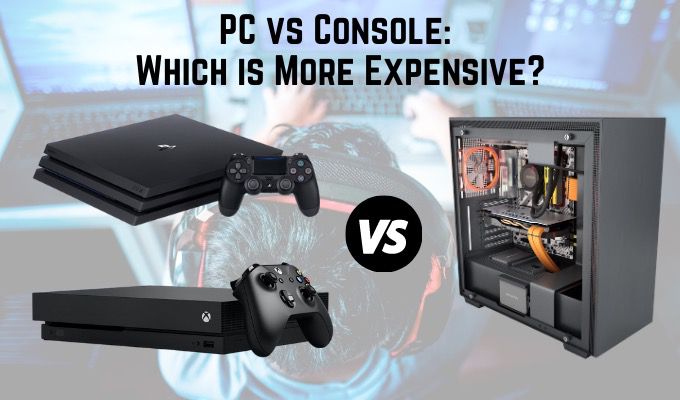
PCs, on the other hand, offer complete hardware flexibility and, if you spend enough, the sort of gaming horsepower that no console can match. Except perhaps right as a new generation of consoles launches.
While the PC platform is, in general the home of premium video game performance, gamers often baulk at the perceived price of being a PC gamer. The question is whether that perception is accurate. The answer, as we’ll see, depends on how you look at things.
The Hardware Costs
There’s no two ways about it. The amount of money you have to hand over to take a console home is less than you’d pay for an equivalent or better gaming PC. As a console’s lifespan rolls along, that fact changes. Since the console hardware doesn’t change, new PC hardware becomes more powerful at a lower price. So eventually a similar asking price for the console will net you a PC with better specifications.

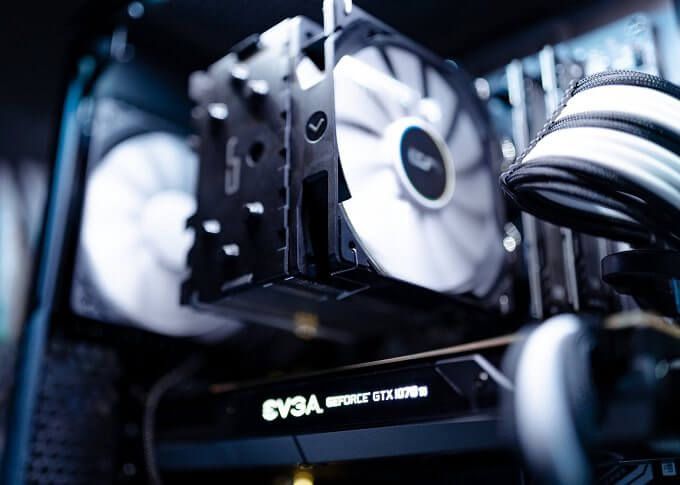
Why are consoles so much cheaper? There are a few reasons for this. Console makers get preferential hardware prices because they build millions and millions of consoles. Console makers also don’t need to make a profit on their consoles. Often they either break even or take a loss on each unit.
This is acceptable because of something known as the “attach rate”. In the case of a console, this refers to the games, services and accessories users must buy to get any real use out of their machine. So even if the console hardware itself doesn’t make any money, there’s instant profit from the sale of the first game, accessory or subscription.

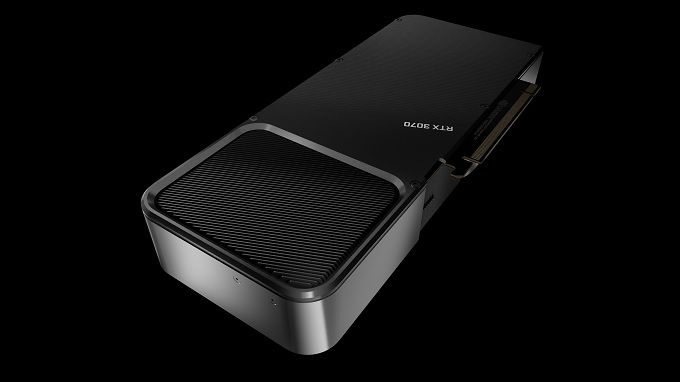
With PCs, every component has a profit margin. The individual manufacturers need to make a return on the hardware or there’d be no point. The end result of this is that, from a performance-per-dollar point of view, PCs are more expensive than consoles. However that’s not the whole story. It would be more accurate to say that PCs cost more upfront. But if we look at the cost over the lifespan of a typical console, that picture changes.
The Software Costs
Because consoles are a closed platform, game developers need to pay for the privilege of releasing games on that system. This comes in the form of a fee attached to every copy sold. Rather than take a hit to their own profits, that cost is passed on to the console gamer. So you’ll find that, at launch, console games cost more than the same title on PC.


That’s not all! Since several different distributors compete for PC game sales, you’ll hardly ever pay retail price for a PC game. Whether it’s a pre-order discount or price cuts mere months or even weeks after launch, there are always amazing deals to be had on PC games. Console games, in contrast, tend to hold their full price for much longer. They also don’t enjoy price cuts nearly as deep as those on PC when they do go on sale.
This is where the main equalizer in the price of gaming on PC vs console comes into play. However, this clearly depends heavily on how many games you buy.

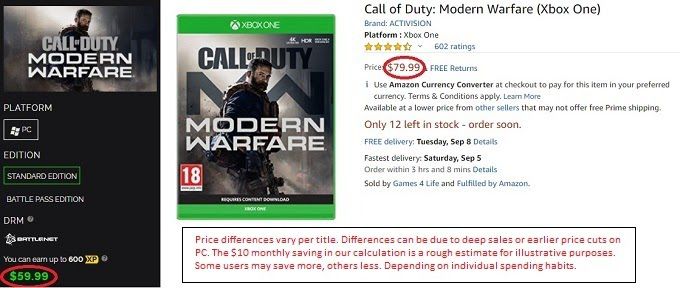
For argument’s sake, let’s say that a console game costs $10 more than the PC version on average. If you buy one game a month for five years, that would be $10 x 12 months x 5 years. Equalling $600.
If you had added that $600 to your initial console purchase and bought a $1000 PC instead, your total expenditure would have been the same. These days, a $1000 can buy a pretty decent gaming laptop or desktop. However that’s just one area of hidden cost that console gamers have to contend with.
Online Services Costs
Since the PC offers an open platform, players don’t have to pay for functions such as multiplayer to a third party. On consoles, online multiplayer is usually reserved for a subscription service, which is in addition to any actual game subscriptions you might have to pay.


Nintendo, Sony and Microsoft have all sweetened the deal by adding discounts and “free” digital games into the mix. So whether that’s worth the cost will be up to individuals. However, the bottom line is that if you want to play online at all the fee isn’t optional.
So the value added aspects don’t carry that much weight. If you add the difference in monthly online multiplayer subscriptions to the average difference in game prices, it further equalizes the price difference between PC and console hardware over the console life cycle.
Upgrade Costs
Next, we need to factor in the cost of upgrading a PC. First of all, upgrades to PC over the course of it’s console equivalent generation is optional. At least when it comes to cross-platform games.

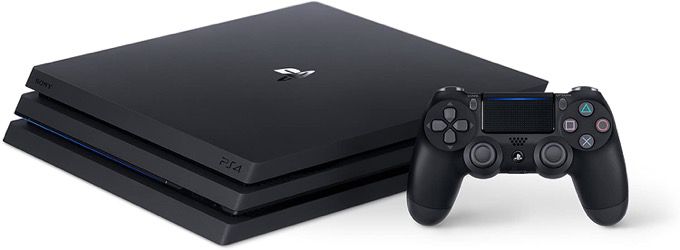
A rather recent development with consoles is the mid-generation upgrade. Which gave us the PlayStation 4 Pro and Xbox One X. Neither of these were essential upgrades, but they did offer a fairly affordable bump to graphical power.
The CPUs for these mid-generation machines were virtually unchanged. So if you did the same thing to your PC mid-generation and only upgrade the GPU, then you’d spend about as much (or less) as you would on a new, updated console. From that point of view upgrading has a negligible effect when comparing PC vs console.
Do You Need A PC For Other Things?
The next important consideration when calculating comparative cost is whether you need a computer for anything besides gaming. If you do need a computer for more than gaming, then the console’s cost is in addition to that of a non-gaming PC.


In that case, you might as well add the costs together and get the gaming PC. If you don’t need a PC at all, then we can leave it out of the cost comparison.
A Different Perspective On Costs
As we’ve seen, if you look at the total cost of ownership over the lifespan of the typical console, the cost differences of PC vs console aren’t nearly as dramatic as they’ve been made out to be. Of course, PCs can be incredibly expensive at the high end, but this is not a comparison of extremes.

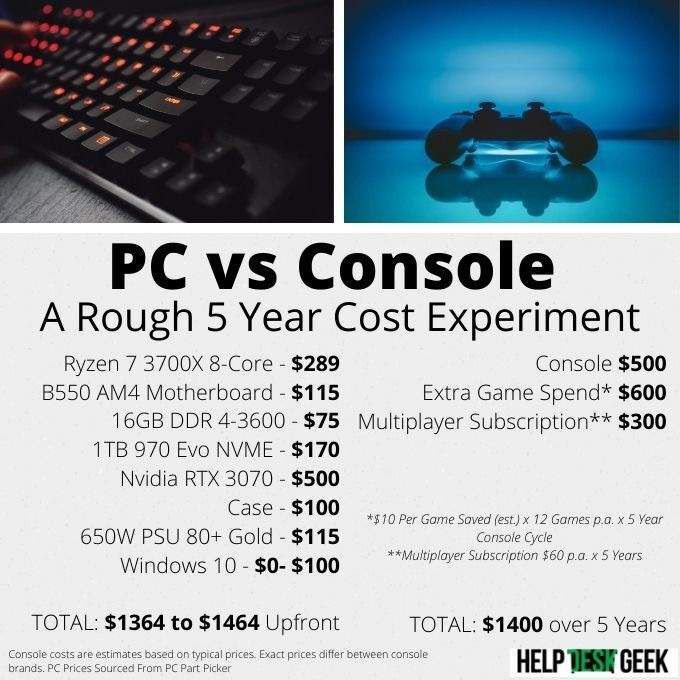
Then again, we shouldn’t forget that consoles have unique advantages as well. For example, they are designed to be shared household machines rather than being personal. Also, they don’t require as much technical knowledge to operate or buy. However, from a pure cost perspective, if you can afford a higher upfront price, there’s a strong argument to be made on the PC side of the equation.

